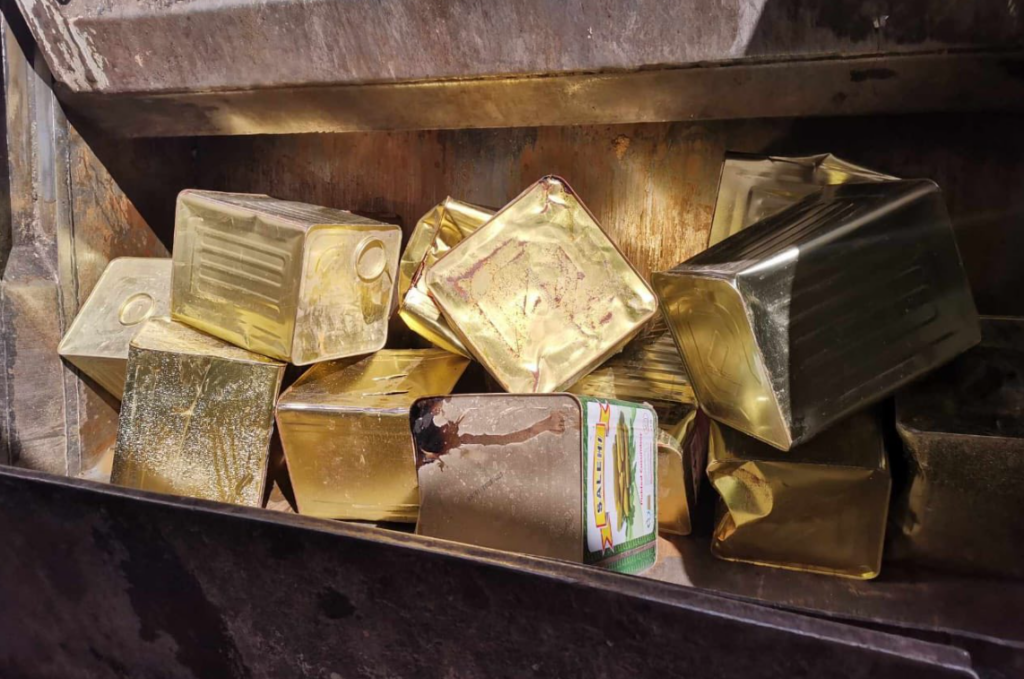Trump's terror chief urges UK to bring its Islamic State members back from Syria

Donald Trump's incoming director of counterterrorism has urged Britain to bring back suspected UK members of the Islamic State group who are in Syrian prison camps in order to preserve its "special relationship" with the US.
Sebastian Gorka, the president-elect's deputy assistant on national security, suggested the UK-US relationship had been weakened in an interview with The Times that signals the incoming Trump administration aims to apply greater pressure on its allies.
"Any nation which wishes to be seen as a serious ally and friend of the most powerful nation in the world should act in a fashion that reflects that serious commitment," he said.
Around 70 Britons are thought to be held by US-backed Kurdish-led forces in detention camps - including 20 women and up to 40 children.
Many have had their British citizenship revoked, including Shamima Begum, who was 15 when she ran away from home in London in 2015 with two school friends and travelled to territory in Syria controlled by Islamic State (IS).
Begum was stripped of her citizenship by a previous Conservative government after she was found in northeastern Syria, held in a camp for the families of suspected IS fighters and people fleeing IS territory as Kurdish-led forces defeated the militant group.
Last year, the UK refused to hear her appeal against her citizenship being revoked - despite her lawyers arguing that she was a victim of human trafficking.
'There should be a presumption of return'
During Trump's first term as president, he told the UK and other European allies to take back their IS fighters held by US-backed forces.
"We do so much, and spend so much," he said in 2019. "Time for others to step up and do the job that they are so capable of doing."
Over 60,000 people are currently being held in the main al-Hol camp for displaced people and families of suspected IS fighters and the smaller al-Roj camp.
In 2020, the US State Department offered to repatriate foreign nationals to their countries of origin and criticised western countries that had refused to repatriate their own nationals.
The next year, the Biden administration urged the UK to repatriate its IS members, calling it a "moral responsibility".
Read More »But Gorka's intervention suggested that Britain will be under pressure to do so to prove its status as a US ally.
The timing comes after the fall of the Assad dynasty in Syria, which has put US-backed Kurdish forces under pressure from Turkey.
Gorka said the UK "has a very special place in President Trump’s heart, and we would all wish to see the ‘special relationship’ fully re-established".
Significantly, Britain's terror watchdog welcomed Gorka's comments, with Jonathan Hall KC, the independent reviewer of terror legislation, telling The Times: "Officials may not welcome this, but the numbers are not so great that - at least in the case of women, and children, for whom special considerations ought to apply on humanitarian grounds - the UK’s well-regarded counter-terrorism system could not absorb the risk.
"The burden of monitoring could be tempered, in high-risk cases, by phased return. At the very least there should be a presumption of return."
However, there remains ambiguity over the status of Britons like Begum, who have been stripped of their citizenship. The UK's stance has been that it bears no responsibility for them.
The Conservative Party's Chris Philp, the shadow home secretary, strongly opposed Gorka's call, saying: "I do not want to see people who actively supported this appalling regime who raped, murdered and persecuted innocent people back on the streets of the UK."
A government spokesperson said: "Our priority remains to ensure the safety and security of the UK. We will continue to do whatever is necessary to protect the UK from those who pose a threat to our security."



